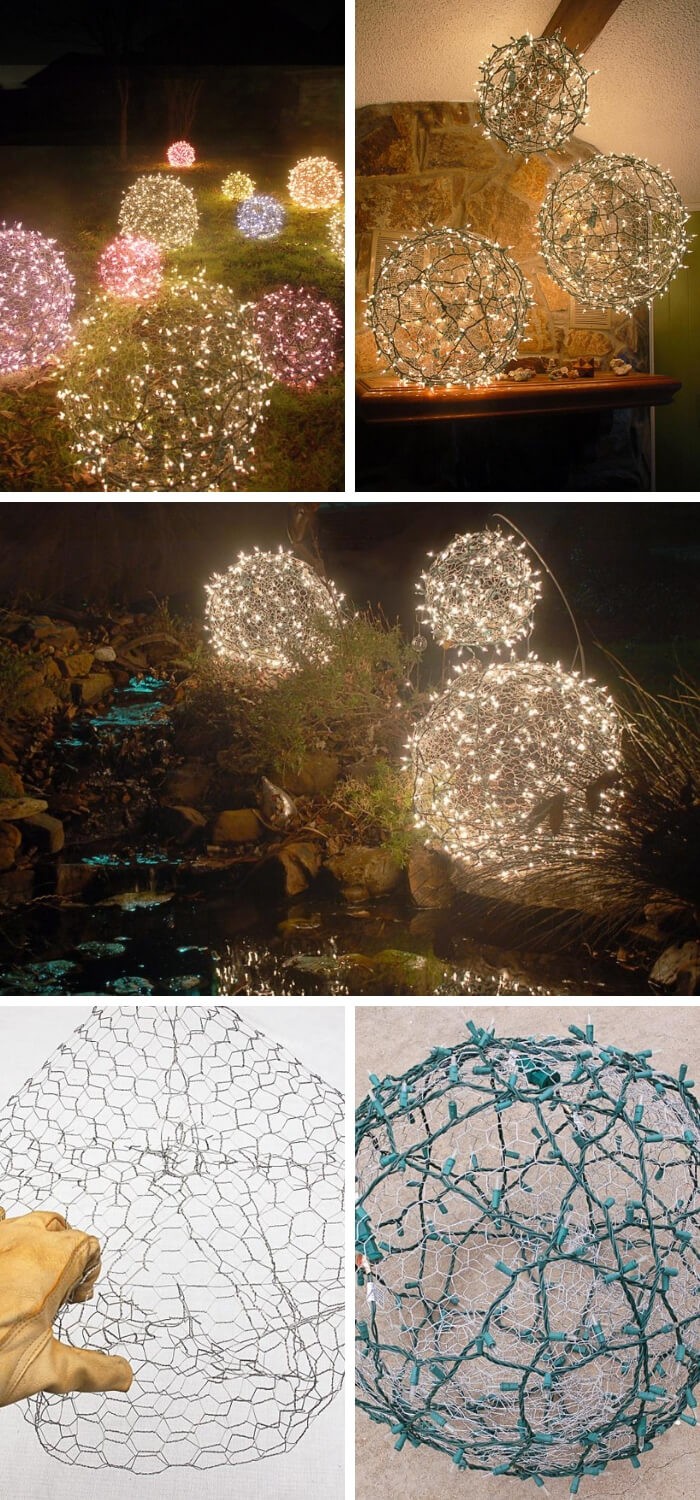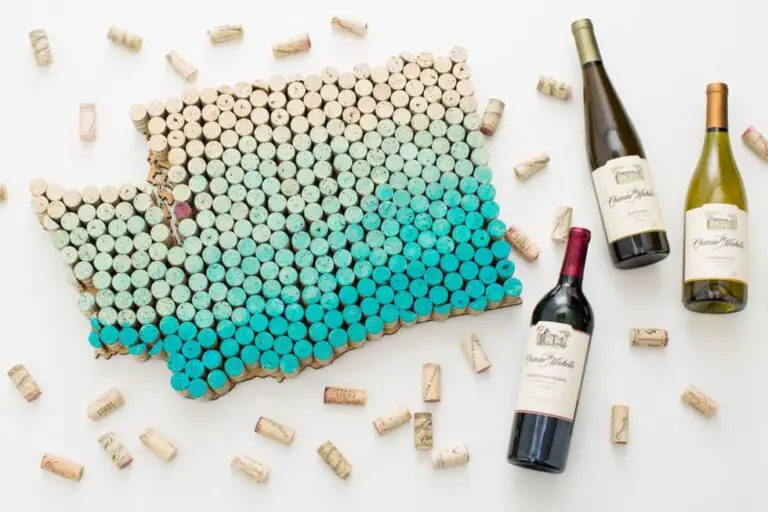Stone Driveway: Cost, Installation, Pros And Cons
Stone driveways are often associated with grandeur and sophistication, thanks to the presence of cobblestones, flagstones, and other types of stones. However, crushed stones and loose stones are also part of this category, often going unnoticed. The rise of stone driveways has been driven by their economic and aesthetic value.
In this post, we’ll focus on crushed stone driveways, providing a comprehensive guide that covers the pros and cons, installation costs, types, and other essential information. From crushed stone driveway ideas to the best ways to edge your driveway, we’ve got you covered.
What is a stone driveway?

While there may be confusion surrounding the term due to the emergence of more refined stone materials, it’s essential to clarify that a stone driveway refers specifically to a surface made entirely of small or crushed stones. This definition should not be conflated with crushed gravel driveways, which typically incorporate sand, clay, and concrete aggregates, thereby distinguishing itself from a true stone driveway.
Stone driveway pros and cons
When considering a stone driveway, it’s crucial to weigh the advantages and disadvantages of using crushed stone. While this material may not be suitable for every homeowner due to specific factors, it’s essential to evaluate the pros and cons before making a decision. By doing so, you’ll be able to determine whether crushed stone is the ideal choice for your driveway.
Pros
When it comes to choosing a driveway material, crushed stone offers an impressive range of options. Depending on your terrain, you can select from different types of crushed stones – from washed to traditional or decorative varieties – as well as various sizes. This flexibility allows you to tailor the look and feel of your driveway to suit your unique surroundings.
While country roads and rural areas are often associated with stone driveways, this material also lends itself well to urban and suburban settings. The ability to choose from different shapes, angles, and sizes further enhances its versatility. One of the key benefits of a crushed stone driveway is its affordability. In fact, it’s only surpassed by gravel in terms of cost-effectiveness.
Furthermore, installing a crushed stone driveway requires little more than basic tools and some DIY know-how – you can even do it yourself at a rapid pace. And when it comes to maintenance, crushed stone driveways are incredibly low-maintenance. A simple leaf-blowing and light raking every now and then is all that’s required to keep your driveway looking its best.
Cons
When it comes to maintaining a crushed stone driveway, there are several factors to consider. One common issue is stone displacement, which can occur when larger car tires kick smaller stones out from around the perimeter of the driveway. This can lead to problems with mowing your lawn if the displaced stones make their way onto the grass. Additionally, in areas where snowfall is significant, you’ll need to be mindful of how you approach snowplowing.
When shoveling snow off a crushed stone driveway, it’s crucial not to disturb the stone arrangement too much, as this can disrupt the overall appearance and functionality of the driveway.
Stone driveway cost
Stone driveways offer a cost-effective option for homeowners, with prices ranging from $0.40 to $3 per square foot. When it comes to professional installation costs, the total expenditure can reach up to $200 per 100 square feet, including material and labor expenses. This affordable solution makes it an attractive choice for those looking to upgrade their driveway without breaking the bank.
Stone driveway installation
For homeowners looking to install a stone driveway without professional help, the good news is that it’s entirely feasible as a DIY project. To get started, measure the length and width of your driveway and mark its perimeter using stakes and nylon strings. Next, dig a trench around 8 inches deep on all sides, then fill the excavated soil with sufficient depth to accommodate the crushed stones. Spread the stones evenly around the perimeter, ensuring a smooth surface.
Identify any high spots and fill gaps with smaller crushed stones. Once every area is covered, use a garden hose to wet the driveway, releasing air pockets and compacting the stones in place. Finally, compress the stones to secure them, and consider applying resin sealing for added longevity.
Stone driveway ideas
Without understanding the concepts we’ve discussed earlier, it’s essential to visualize them in action through stunning stone driveway designs. To spark your creativity, let’s dive into a selection of the most impressive and innovative stone driveway ideas that will transform your property.
Slate and crushed stone
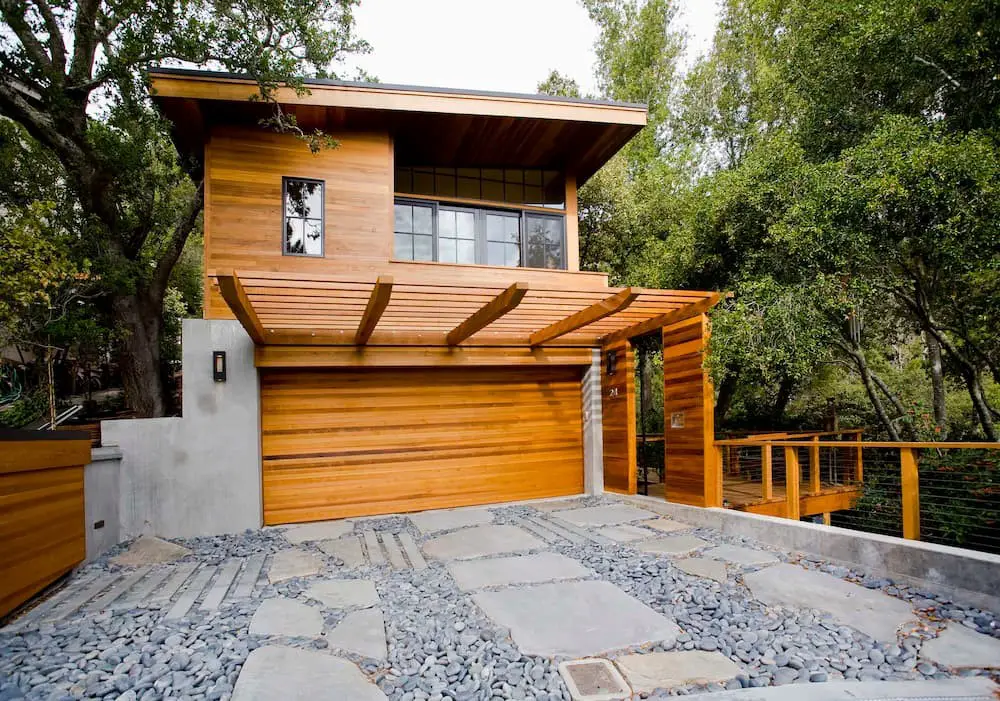
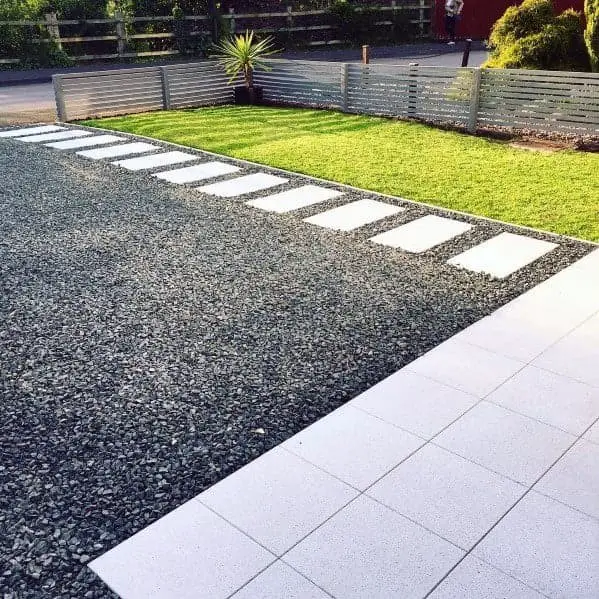
The modern home boasts a charming exterior, where warm wood tones are beautifully complemented by crushed granite stone and slate walkways. This rugged yet earthy aesthetic significantly enhances the property’s curb appeal, making it stand out from the rest. Another option for crushed granite stones is one that features a smoother texture, with finer particles and a less angular appearance.
This design combines well with white slates used as gapped edging and walkways, creating a visually appealing and harmonious overall look.
English manor style
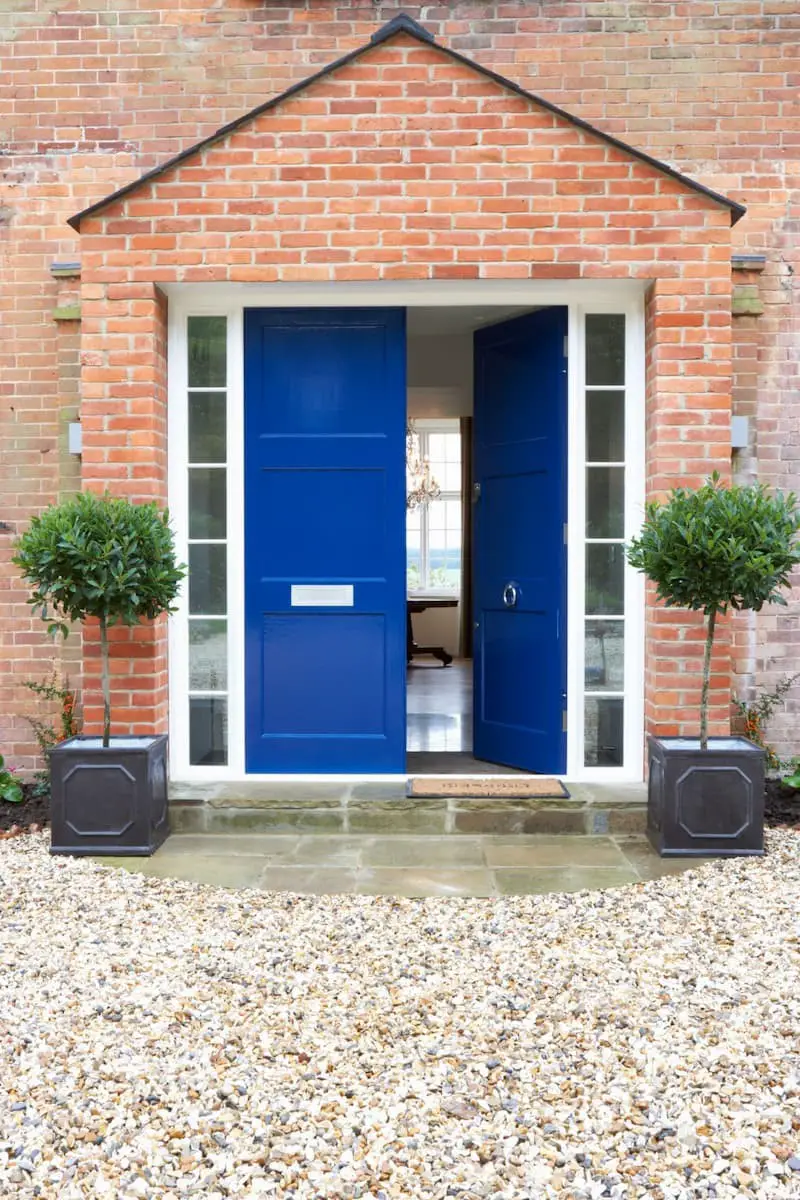
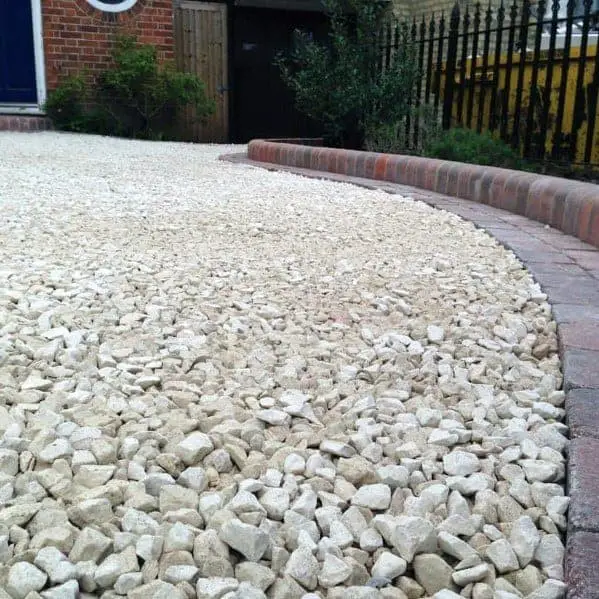
To evoke the quintessential English manor charm, consider combining 1-2 inches of natural stone varieties like granite, white marble, gneiss, or limestone. A prime example is a stone driveway that culminates at the front door, with a smooth transition achieved through stone pavers, resulting in a cohesive visual effect.
Another English-inspired design features contrasting elements – in this case, 2-3-inch white angled marble chips paired with brick edging.
The radiant color of the crushed marble enhances the overall ambiance, extending its impact all the way up to the main entrance.
Crushed stones and parking grid
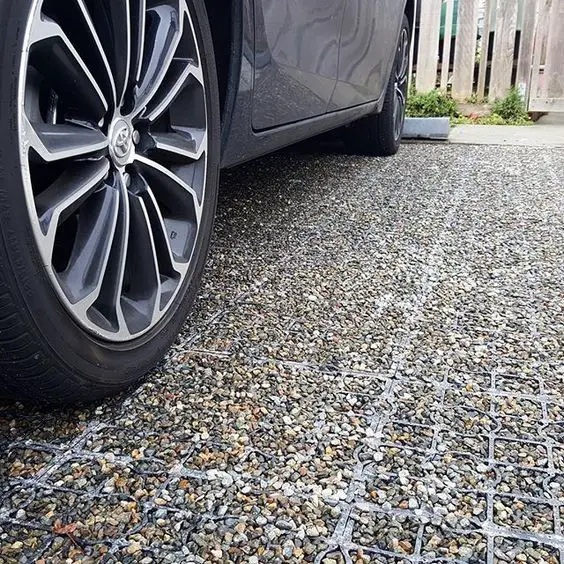
When designing a crushed stone driveway in a muddy area, it’s crucial to consider creative solutions that balance aesthetics with functionality. One effective approach is to install a parking grid on top of landscape fabric, which helps maintain the integrity of the stones while also ensuring natural drainage and preventing water puddling.
Natural edging

A charming driveway design is showcased here, where small river rocks are strategically placed amidst perfectly manicured turf grass edges. The harmonious combination of these two elements generates a visually appealing contrast that beautifully complements the natural stone façade of the surrounding home.
River rock driveway
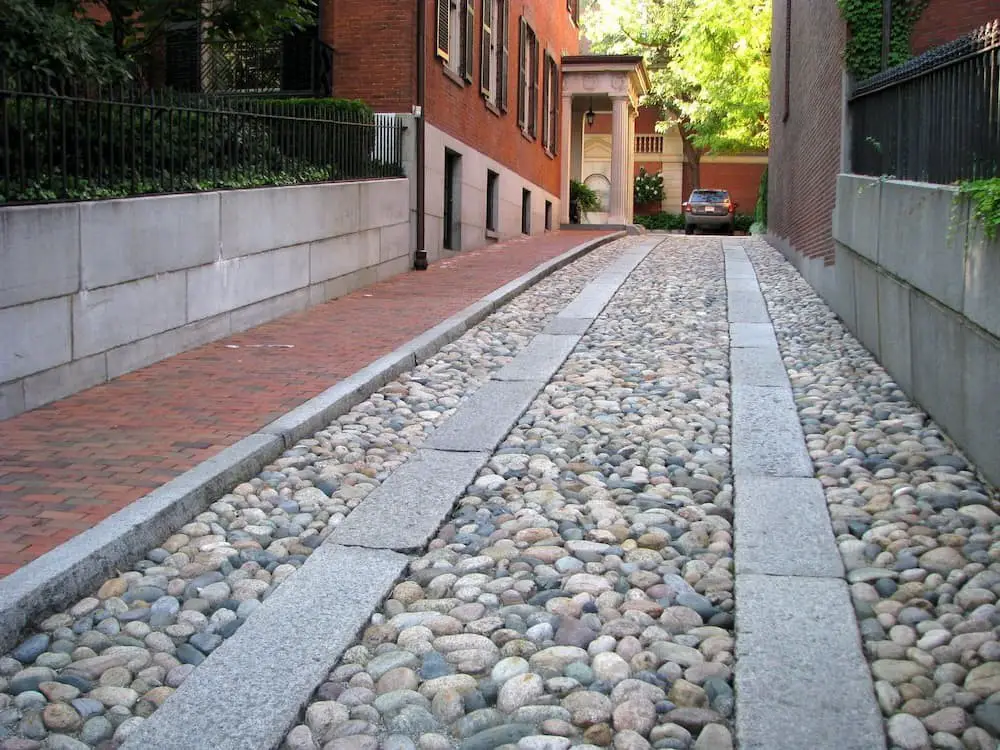
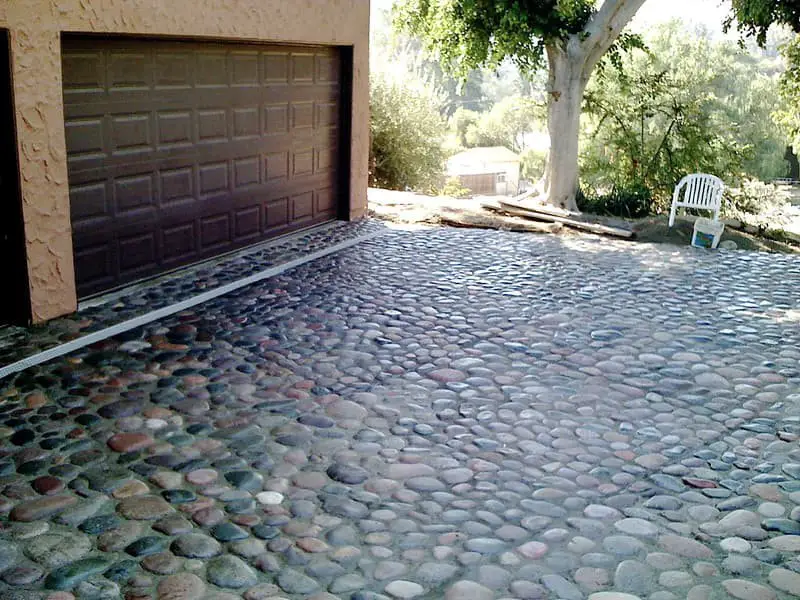
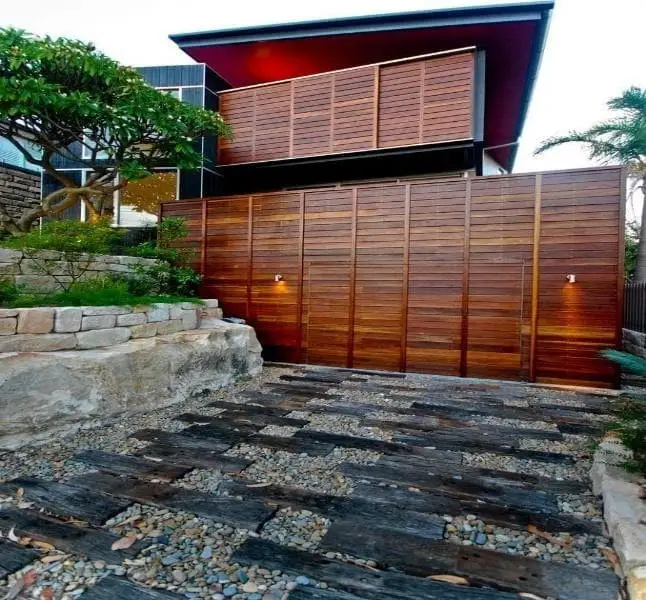
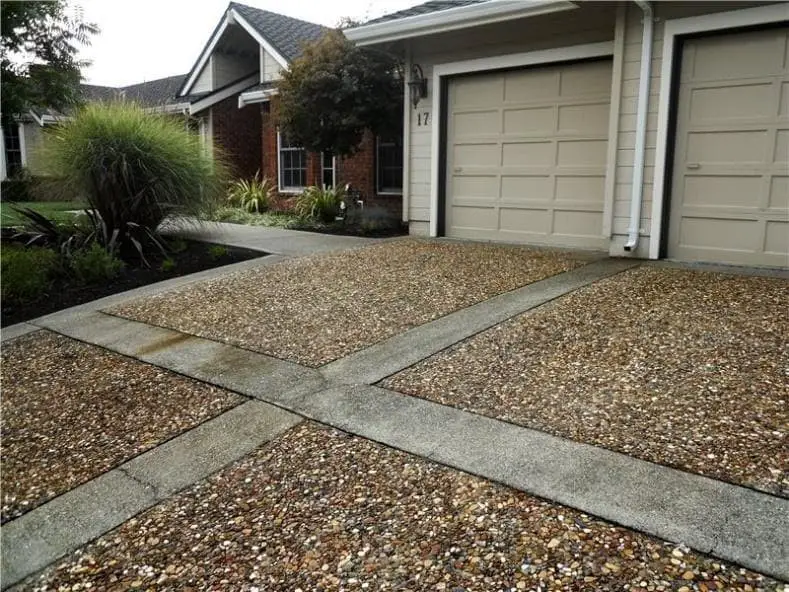
River rocks, with their vibrant colors and smooth surfaces, have emerged as a top choice for crushed stone driveways. To create a modern and minimalist look, simply arrange them alongside stone pavers or concrete barriers. This versatile material can also be bound together with resin to produce a glossy, polished courtyard-style driveway that extends to the front door or porch.
For a unique blend of modern and rustic elements, combine larger river rocks with wood stepping slates for your driveway. When paired with a warm wood exterior, this fusion of Asian zen and modern rustic style creates a captivating visual effect.
Alternatively, use stone pavers to create parking grids or add a decorative edge to your river rock driveway.
By incorporating finer river rocks held in place by stone pavers, you can achieve a polished and bound look that adds a touch of elegance to your outdoor space.
Concrete paver edging
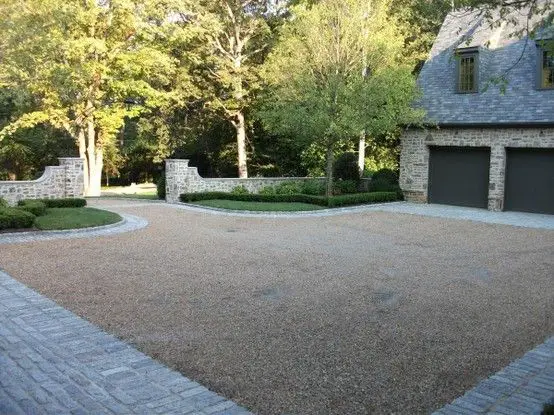
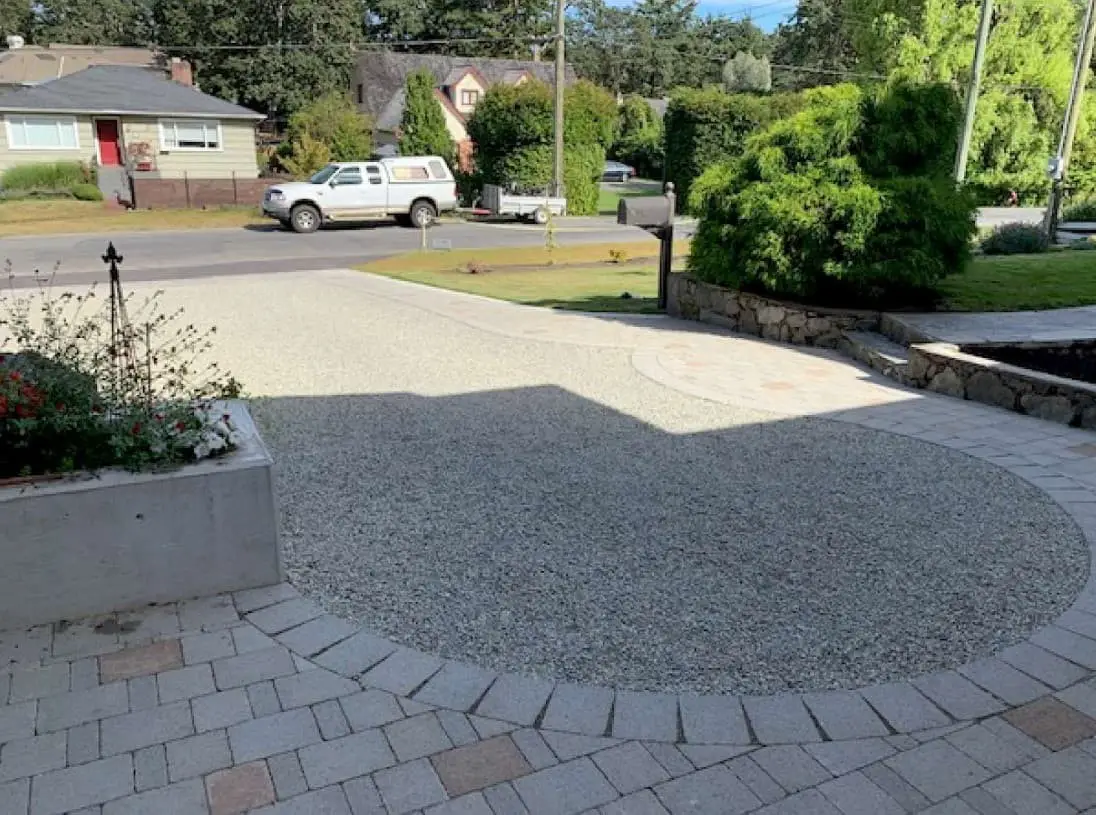
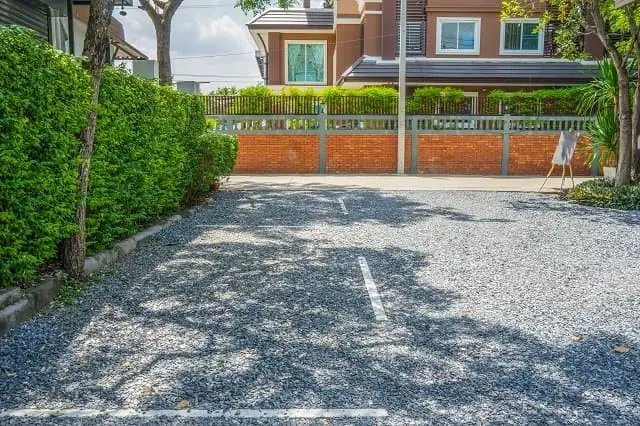
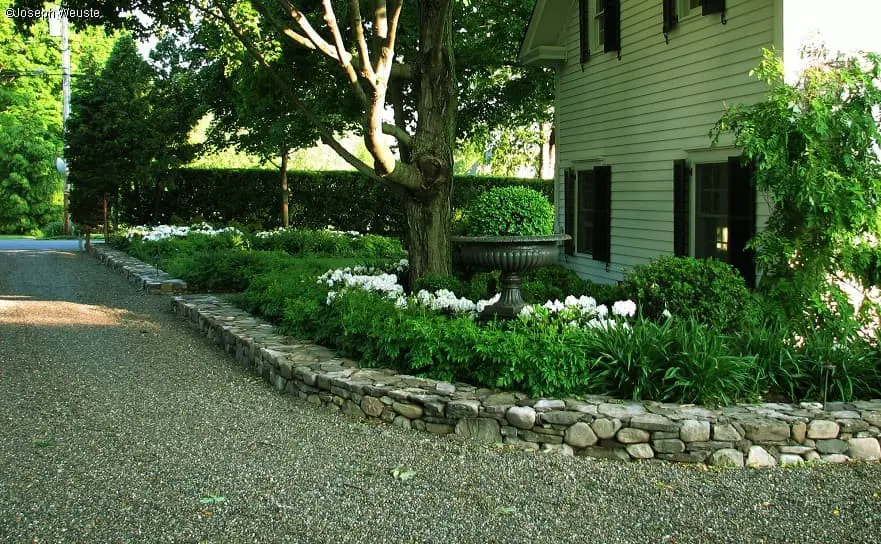
The suburban home’s driveway is designed with a medium-sized pathway composed of crushed cobblestone and limestone, bordered by flat concrete pavers that double as a walkway around the residence. The warm tone imparted by the crushed stones makes it an ideal choice for a stone house like this one. In contrast, another curved driveway takes advantage of pure crushed limestones edged with concrete pavers, showcasing a simple yet effective design that enhances curb appeal.
A third example features an open courtyard style driveway lined with crushed bluestones and bordered by raised stone edging that also serves as planters, providing a striking visual contrast between the natural stones and lush greenery. Additionally, another classic style incorporates finer crushed natural stones such as limestone, bluestone, and granite, complemented by towering trees that provide a shaded canopy reminiscent of southern driveways.
How to edge a stone driveway
When it comes to stone driveways, edging plays a crucial role in keeping the stones in place and preventing erosion. While flat and raised edges can be suitable for stone driveways, some options offer more benefits than others. For instance, crushed stone driveways require additional protection to ensure the stones remain stable. Here are some of the most effective stone driveway edge solutions you should consider.
Concrete blocks provide a sturdy base that prevents stones from shifting or getting displaced. Alternatively, you can opt for a more natural approach by using plants, grass, or flowering plants to create a beautiful border. Stone pavers and bricks offer a harmonious blend of form and function, while wood edges add a touch of rustic charm.
Type of stone for driveway
When discussing the best stones for driveways, the conversation naturally extends to types of gravel. This is because crushed stone can also be classified as gravel, depending on its fineness. As a result, the options for driveway stone are essentially the same as those for gravel. Here’s a breakdown of your choices:River rock, with its smooth texture and natural beauty, can add a touch of elegance to your driveway.
Quarry stone, which is often used in landscaping and construction projects, offers a rugged, durable alternative. Clean stone, also known as screenings or pit run, is a type of crushed stone that’s perfect for driveways that require minimal maintenance. Marble chips bring a touch of luxury to your driveway, with their distinctive white or off-white color and high-end aesthetic. Jersey Shore gravel, characterized by its coarse texture and irregular shape, can add a unique charm to your driveway.
Finally, there are the more traditional options: granite, limestone, sandstone, basalt, gneiss, and slate. Each of these natural stones has its own unique characteristics, benefits, and visual appeal.
Crushed stone vs gravel driveway
While crushed stone and gravel may appear similar at first glance, they have distinct differences that set them apart. Crushed stone is a manmade product created through the crushing of natural stones, resulting in a more angular and varied shape and size. This makes it a popular choice for residential driveways due to its durability and aesthetic appeal.
In contrast, gravel is a naturally occurring material formed through erosion, where large rocks are broken down into smaller, smoother particles over time. The surface of gravel is generally smoother than crushed stone, with a more rounded appearance. Additionally, gravel tends to be lighter in weight and is often used as a binding agent in construction projects. Its versatility also makes it suitable for use in driveways and landscaping.
Asphalt vs stone driveway
The debate surrounding asphalt and stone driveways has been ongoing for years, with each material having its own unique characteristics. While aesthetics play a significant role in the choice between the two, it’s essential to consider their performance as driveway materials. To provide a comprehensive comparison, we’ll delve into the pros and cons of each material relative to one another.
Asphalt driveways boast a sleek, black appearance that can be customized with varying colors, sizes, and shapes. With a lifespan of 30-50 years, they require regular sealing to maintain their integrity. In contrast, stone driveways have lower maintenance requirements, as they don’t need sealing. However, they do necessitate occasional stone replenishment to ensure optimal performance.
Another key difference lies in their thermal stability.
Asphalt driveways can melt in high heat, whereas stone driveways remain durable in frost and extreme temperatures. Furthermore, asphalt driveways tend to be more expensive compared to stone driveways, which are one of the most affordable driveway materials available, with gravel being even less costly.
Ultimately, the choice between an asphalt and a stone driveway depends on your specific needs and preferences.
Crushed stone driveway maintenance
To keep your crushed stone driveway in top shape, regular maintenance is crucial. Here’s a step-by-step guide to help you upkeep your driveway effectively.
Firstly, make sure to rake the surface regularly, especially after heavy rainfall, strong winds, or seasonal changes like summer and fall. This helps prevent erosion and keeps the driveway looking neat.
Secondly, ensure proper drainage is in place.
Water puddles can wash away smaller crushed stones, so it’s essential to maintain a smooth flow of water down the driveway.
Thirdly, address any potholes that arise. As soon as you spot one, refill it with additional crushed stone to prevent weak points from developing and causing further damage.
Fourthly, replenish the crushed stones in your driveway annually or every two years to maintain its overall appearance and structural integrity.
Lastly, when dealing with snow, exercise caution by leaving at least 1-2 inches of coverage during winter. This prevents over-plowing, which can damage the surface of your driveway.
FAQs
Beyond the fundamental requirements for a successful stone driveway installation, there are several additional details to consider when setting up and maintaining this type of surface. To provide a comprehensive guide, we’ve compiled a list of frequently asked questions (FAQs) related to stone driveways. These answers will serve as a valuable resource for anyone looking to install a stone driveway at their home.
How much stone do I need for my driveway?
To determine the required amount of stone for your driveway, you’ll need to consider the size and shape of the area. For a more traditional approach, calculate the square footage by multiplying the length and width of the space. Then, divide that figure by the coverage area per ton of stone. The coverage area per ton will depend on the size of stone you choose for your driveway.
Typically, 1-3-inch stones provide an 80 square foot coverage area per ton, while 4-8-inch stones offer a 60 square foot coverage area per ton. Alternatively, you can use an online calculator to simplify the process and save time.
How deep should a crushed stone driveway be?
According to industry experts and leading online contracting services, the recommended depth for a stone driveway is between 4-6 inches of stone material. This translates to a minimum depth of 12-16 inches for a comprehensive coverage that prevents potholes from forming. Furthermore, this level of depth provides sufficient stability to withstand heavier loads and larger vehicles, making it an ideal solution for households with multiple cars or frequent visitors.
How to repair a stone driveway after a snow plow?
When a stone driveway sustains damage following snowplow activity, the extent of repairs is often limited to addressing deep potholes or repositioned stones. In such instances, the most effective course of action is to rake out the potholes, creating a smooth surface, and then re-lay any displaced stones to restore the original state of the driveway.
Best snowblower for stone driveway
When it comes to managing the potential damage caused by snow plowing, snowblowers can be a valuable investment. If you’re in the market for one, it’s worth considering some of the highest-rated models out there.
From powerful two-stage blowers to efficient single-stage machines, here are some top-rated options to consider: Yardmax YB6770, PowerSmart Snow Blower 24 Inch 2-Stage, Troy-Bilt Vortex2490, HUSQVARNA ST224, ARIENS Classic, Poulan Pro PR300, Briggs and Stratton 1696619, SnoTek 24, and Snow Joe SJ623E. Each of these models has its own unique features and benefits that can help you find the perfect fit for your snow removal needs.
How to get rid of weeds in stone driveway?
While stone driveways may seem like an inhospitable environment for weeds, the presence of moisture and soil nutrients can still foster their growth. For those who prefer a chemical-free approach, there are several effective yet gentle methods to control weed proliferation. These include mixing white vinegar with liquid detergent and water, physically removing weeds by their roots, using boiling water as a herbicide, or employing a hot water and salt solution.
By leveraging these alternatives, individuals can maintain the aesthetic appeal of their stone driveways without relying on potent weed killers.
How long should a paving stone driveway last?
When it comes to creating a driveway that can withstand the test of time, stone pavers are often the go-to option due to their exceptional durability and lifespan. With proper installation and regular maintenance, paving stone driveways can last for an impressive quarter century to half a century, providing a reliable and long-lasting solution for homeowners.
What is the best size of crushed stone for driveways?
When selecting crushed stones for driveways, it’s essential to consider not only safety but also drainage. The ideal sizes for achieving this balance are 3/8-inches, ¾-inches, and 5/8-inches. These mid-range options provide a stable foundation for vehicles while allowing water to flow freely beneath the surface.
Is crushed asphalt cheaper than crushed stone?
While some might argue that the cost of crushed stone and crushed asphalt are relatively similar, a closer look reveals that crushed stone is significantly more affordable. In fact, the starting price point for crushed asphalt is $2, whereas crushed stone begins at just $0.40. This disparity in material costs can have a substantial impact on the overall expenditure for driveway construction.
Do crushed stones need to be compacted?
The notion that crushed stones are suitable for driveways is a misconception. At just 12-16 inches in depth, the layers can be compacted without issue. However, extending this process to deeper levels requires specialized labor and significant time investment. For small to medium-sized driveways, the practicality of compaction is questionable, making it an impractical solution.
How do I re-channel water runoff from a stone driveway?
Despite the natural drainage capabilities of stones, it’s essential to supplement with French drains or a centralized drainage system connecting to the street drain. This setup enables effective prevention of water pooling on driveways, thereby reducing erosion and preserving the integrity of the crushed stone surface.
Can I cover a stone driveway with resin?
For a high-end appearance on your stone driveway, consider covering the crushed stones with resin. On average, the cost for one square meter of resin starts at $50 and may vary depending on labor and material costs. When weighing this option, keep in mind that if damage occurs, you’ll need to replace the entire surface as the resin bonds and hardens the stones, making it impossible to simply replenish them.
However, the primary benefit is that you won’t have to contend with weeds growing in your driveway ever again.
What to put under a stone driveway?
When it comes to laying a stone driveway, a crucial step often overlooked is placing a heavy-duty landscape fabric with ground grid underneath. This simple yet effective solution helps prevent ruts and potholes from forming by preventing crushed stones from migrating under high-impact driving conditions. By installing this foundation layer, you’ll also enjoy the long-term benefit of reduced maintenance costs, as the need to replenish the stone surface becomes less frequent over time.
Conclusion
When selecting a material for your driveway, crushed stone is an excellent option due to its visual appeal, ease of installation, low maintenance requirements, and affordability. While it shares some characteristics with stone pavers and gravel driveways, it’s essential to understand the unique benefits that set stone driveways apart. Ultimately, the decision to install a stone driveway comes down to weighing factors such as cost, personal style, climate conditions, and maintenance needs.
If you believe a stone driveway aligns with your priorities, there’s no reason why it shouldn’t be the ideal choice for your home.



